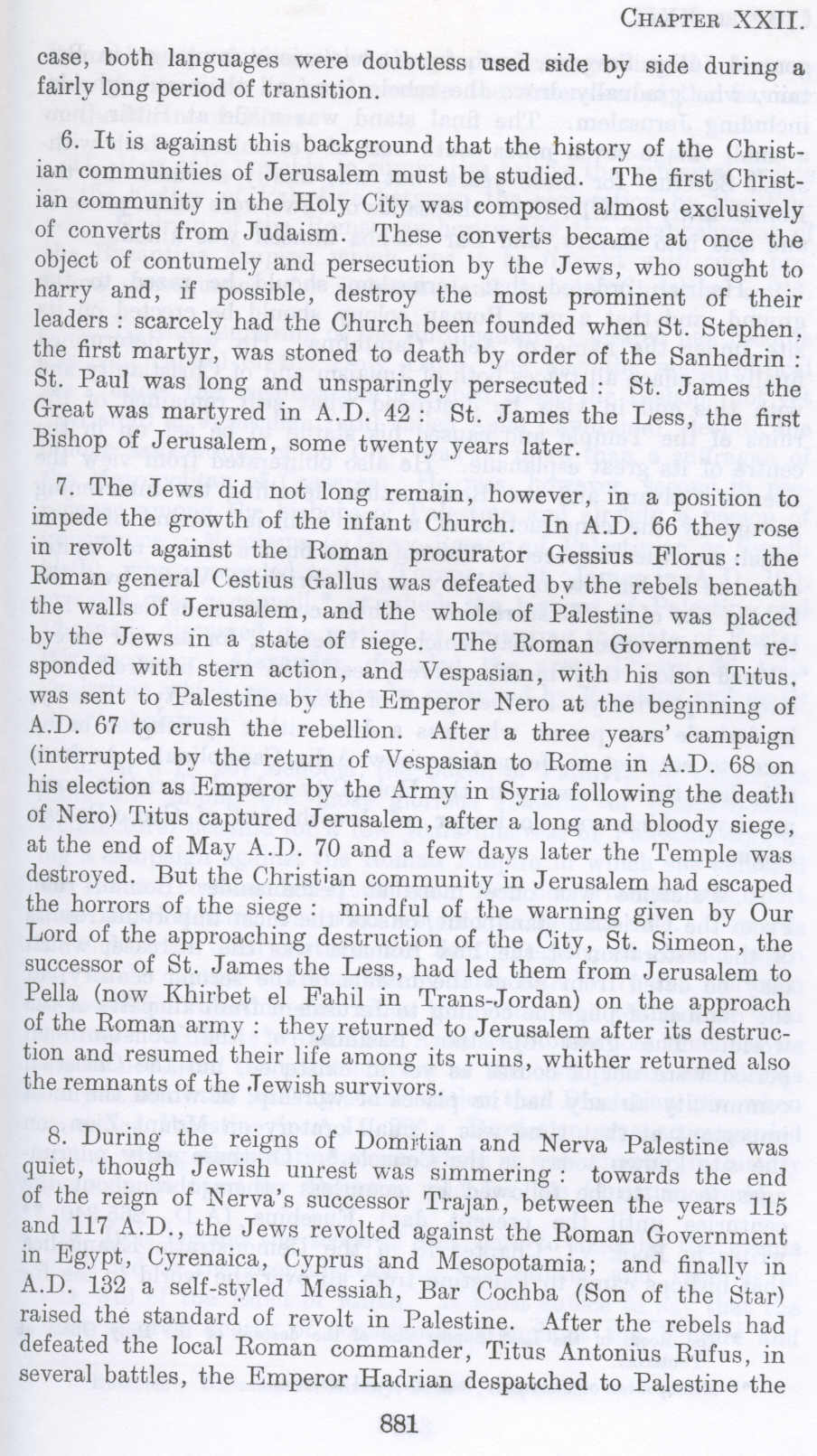| Prev | Next |  |
| Prev | Next |
| PalestineRemembered | About Us | Oral History | العربية | |
| Pictures | Zionist FAQs | Haavara | Maps | |
| Search |
| Camps |
| Districts |
| Acre |
| Baysan |
| Beersheba |
| Bethlehem |
| Gaza |
| Haifa |
| Hebron |
| Jaffa |
| Jericho |
| Jerusalem |
| Jinin |
| Nablus |
| Nazareth |
| Ramallah |
| al-Ramla |
| Safad |
| Tiberias |
| Tulkarm |
| Donate |
| Contact |
| Profile |
| Videos |
British Mandate: A Survey of Palestine: Volume II - Page 881 |
Disclaimer
The above documents, article, interviews, movies, podcasts, or stories reflects solely the research and opinions of its authors. PalestineRemembered.com makes its best effort to validate its contents.


Post Your Comment
*It should be NOTED that your email address won't be shared, and all communications between members will be routed via the website's mail server.
case, both languages were doubtless used side by side during a fairly long period of transition.
6. It is against this background that the history of the Christian communities of Jerusalem must be studied. The first Christian community in the Holy City was composed almost exclusively of converts from Judaism. These converts became at once the object of contumely and persecution by the Jews, who sought to harry and, if possible, destroy the most prominent of their leaders : scarcely had the Church been founded when St. Stephen, the first martyr, was stoned to death by order of the Sanhedrin :
St. Paul was long and unsparingly persecuted : St. James the Great was martyred in A.D. 42: St. James the Less, the first Bishop of Jerusalem, some twenty years later.
7. The Jews did not long remain, however, in a position to impede the growth of the infant Church. In A.D. 66 they rose in revolt against the Roman procurator Gessius Florus : the Roman general Cestius Gallus was defeated by the rebels beneath the walls of Jerusalem, and the whole of Palestine was placed by the Jews in a state of siege. The Roman Government responded with stem action, and Vespasian, with his son Titus, was sent to Palestine by the Emperor Nero at the beginning of A.D. 67 to crush the rebellion. After a three years' campaign (interrupted by the return of Vespasian to Rome in A.D. 68 on his election as Emperor by the Army in Syria following the death of Nero) Titus captured Jerusalem, after a long and bloody siege, at the end of May A.D. 70 and a few days later the Temple was destroyed. But the Christian community in Jerusalem had escaped the horrors of the siege : mindful of the warning given by Our Lord of the approaching destruction of the City, St. Simeon, the successor of St. James the Less, had led them from Jerusalem to Pella (now Khirbet el Fahil in Trans-Jordan) on the approach of the Roman army : they returned to Jerusalem after its destruction and resumed their life among its ruins, whither returned also the remnants of the .Tewish survivors.
8. During the reigns of Domieiau and Nerva Palestine was quiet, though Jewish unrest was simmering: towards the end of the reign of Nerva's successor Trajan, between the years 115 and 117 A.D., The Jews revolted against the Roman Government in Egypt, Cyrenaica, Cyprus and Mesopotamia; and finally in A.D. 132 a self-styled Messiah, Bar Cochba (Son of the Star) raised the standard. of revolt in Palestine. After the rebels had defeated the local Roman commander, Titus Antonius Rufus, in several battles, the Emperor Hadrian despatched to Palestine the
881